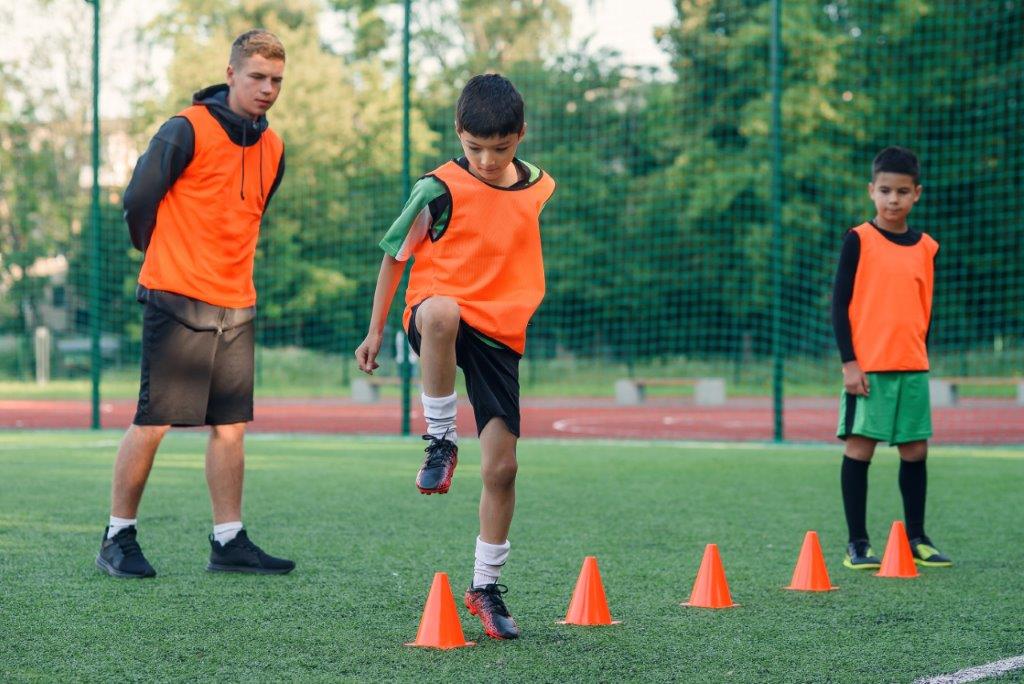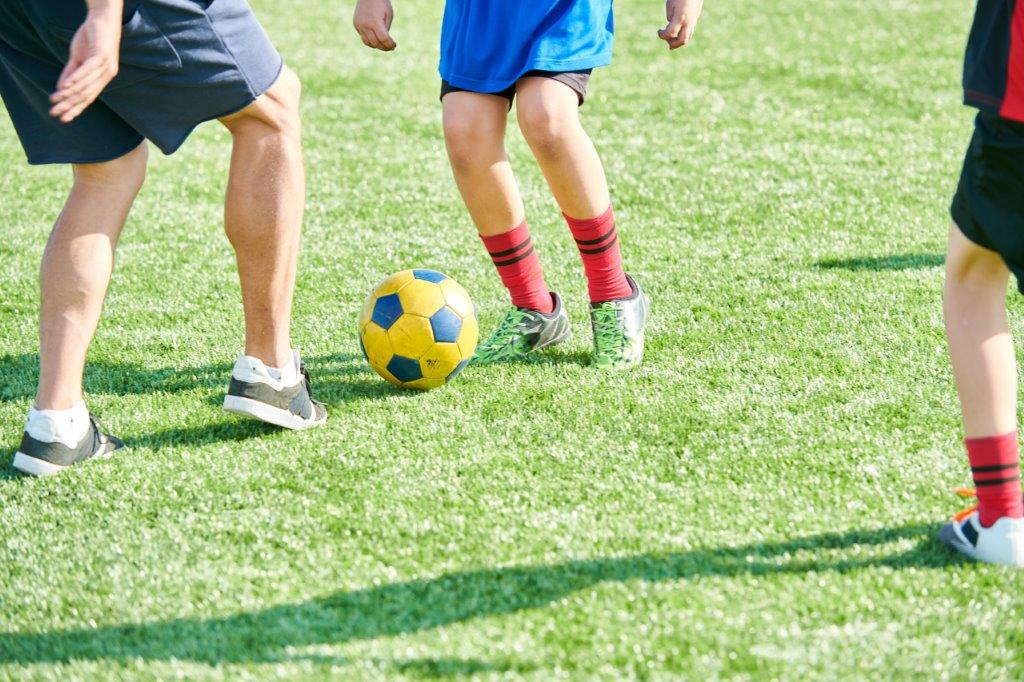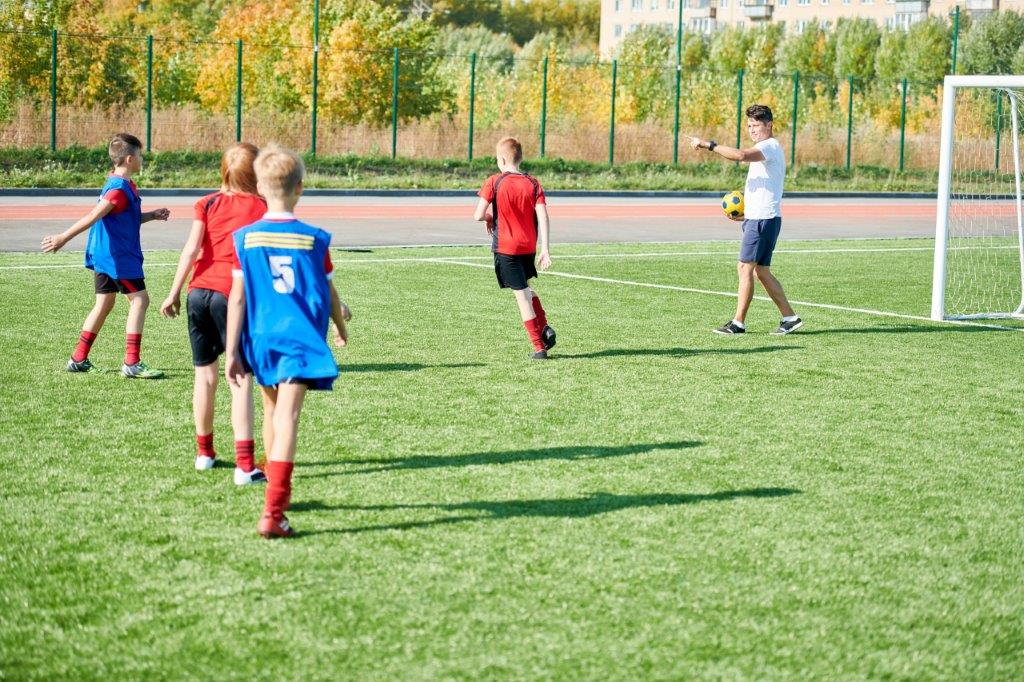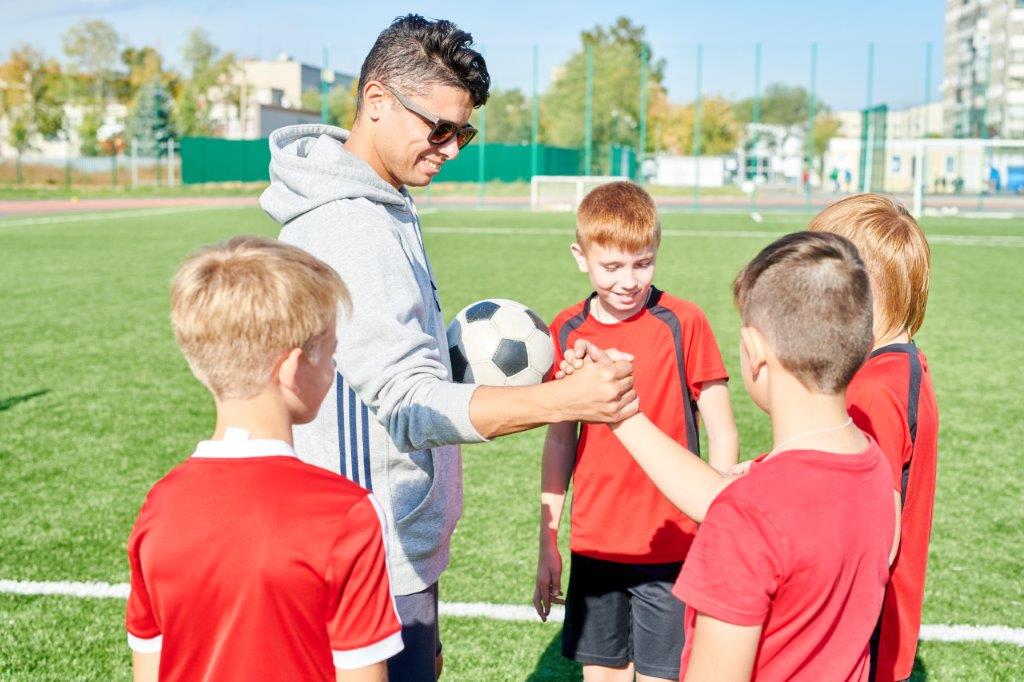Football For Kids: Complete Handbook
The love for football is universal. From the beaches of Rio de Janeiro to the streets of Mumbai, you would see people playing football or donning football shirts. But, how safe is football for kids?
[powerkit_toc title=”Table of Contents” depth=”1″ min_count=”4″ min_characters=”1000″]
Many parents have their reservations regarding outdoor sports activities like football. They fear the physicality of the game would lead to serious injuries. But, they fail to recognise that sports can play an important part in a child’s mental and physical development. It is instrumental to be physically active in your childhood years, as it would forge your physique for the future.
Football packs a host of positives, that can have a profound impact on children. Therefore, football for kids could be an ideal extra-curricular activity.
From Which Age Are Kids Allowed To Play Football/Soccer?
In our book, a child should start to play football between the ages of three and five. Exposure to football could help children belonging to this age group learn the sport better and develop a genuine affinity for it.
But, not all kids are the same. Some parents might feel that ages three to five is a bit premature for football for kids. In that case, ages six to nine is completely fine too. In fact, some kids might find it easier to get a hold of the game when they are a bit older. They reap the benefits of their better physical coordination skills and superior attention span.

How To Get Your Children Started in Football
No matter where you live on earth, you won’t have trouble introducing your kid to football. It is the most played sport around the world and in many countries, there are football schools for kids.
However, your child should get hang of the ABC of football without attending football for kids coaching institutes. Watching the game on TV could help him/her to pick up the basics. You can be the first football teacher of your kids. Teach them the rules of the game, play passes, and show them how to take shots. This could become a very fun way of connecting to your children.
How To Introduce Your Children To Football at Home
If you are trying to find something new to do with your kids, being their first football coach could be a great option. Kids aged three to eight years old can get their first lessons in football from their parents. For older kids, it would be better to get them enrolled in a youth academy where they can play with other similar aged kids. At that age, they should be learning to play in a more comprehensive setup.
All you need to get the ball rolling is an appropriate size football for kids. For children aged below 8, we recommend choosing a size 3 football. It would be suitable for children as young as 3 years old. Keep in mind that you would be doing the most fundamental football drills. Football for kids is a fun activity, but you need to properly build up to it so that your children can develop a true interest in the game.
So, stick to the most elementary football training regimens. You can start by kicking the ball to your children and ask them to kick it back to you. Then, show them how to receive the ball and pass with their instep. You can also practice some shooting with them. Make a makeshift goalpost with any two objects and ask your kid to kick the ball through them. You can purchase 6’’x4’’ portable football for kids goalposts.

These posts are convenient because you can carry them anywhere you go. You can put one in your backyard, or take it along in your car trunk to a park or any other playing venue. The shooting can drill can be quite engaging for kids. As they score, it gives them a sense of accomplishment and encourages them to continue practising football.
Start with these basic two drills, then move to more sophisticated moves like dribbling, heading etc. Football for kids starts at home, and you should ensure that your child enjoys the game as he/she plays with you.
Football Classes
If you want your children to take football more seriously from the beginning, then you can consider getting them to admitted to football for kids classes. Many institutes have such courses to train 3 to 5 years old footballers. Football classes can also teach your children to become in a healthy manner. Practising and playing with other kids, would motivate them to get better. In doing so, they would get to learn the game properly.
Under the supervision of professionals, your children would be able to expand their skillsets, learn to have faith in their capabilities, improve their decision makings, and learn how to co-operate with teammates. Besides football, kids can also master discipline and socialising from attending football classes. Learning organised football and teamwork would help kids take in the importance of self-control and social interaction.

Are Shin Guards Required?
Shin guards are an essential protective measure in football. In a game where 22 players compete for gaining possession of the ball, it is normal to take some blows, and shin guards subdue those. Shin guards are even more significant in football for kids. At premature levels, football has very little to do with tactics and techniques. It is more of a spontaneous pursuit.
The casual nature of the game calls for more safeguards. Since football is a contact sport and players have minimal control over themselves at this level, not taking adequate precautions could result in injuries. Wearing a pair of shin guards underneath the socks, make football for kids much safer. It would minimise the risks of your child getting hurt after being on the receiving end of harsh challenges.
Shin guards also help kids overcome the fear of getting injured and make them confident to take on the opposition. If kids feel insecure on the pitch, they would never be able to play to their full abilities. Shin guards give them a sense of protection, which is key to becoming successful in the game. Wearing shin guards makes football for kids safer and enables kids to play their natural game.
There is one more reason for kids to play wearing shin guards. Since 1990, shin guards have been compulsory in competitive football. So, kids need to get used to wearing shin guards when they play.
Is it Safe For Kids To Play Together?
Socialising is something that comes imprinted in our DNA. Even the most introvert of us all can’t deny the fact that they crave social companionship. So, playing with each other is a great social activity for kids. But, the question is, is it safe for children to play football together? As long as there is adult supervision, there is no reason to be concerned. For kids aged below 5, you shouldn’t leave them alone while they play.
Following steps should be taken for maximising player safety in football for kids:
- All players must wear shin pads.
- Reckless tackles should be discouraged.
- Check the field for stones, debris, and any other object that could injure the children. Don’t let them play in a field with sinkholes.
- Football is fun, but playing too much of it could be damaging. Children should have weekly breaks, instead of playing football every day.
- Make sure the kids stay hydrated while playing football during the summer.
- Football is a physical game, so football for kids should be limited within players of similar physical shapes and sizes. Playing with older kids might injure the younger ones.

What Benefits Can Kids Get Playing Football?
- Getting to know other kids and becoming friends with them is an indispensable part of a child’s psychological and social growth. Playing football allows them to make acquaintance with each other and learn to work together to achieve a common goal.
- Football is one of the most effective and engaging forms of physical exercise. Playing regular football would have a profound impact on a child’s physical and neurological development. It helps with improving motor skills and boosts muscular strength.
- Apart from physical and mental developments, football can enlighten children with several useful life skills. Football is a sport won by coordinated effort, instead of individual brilliance. Therefore, it can teach children the value of teamwork and discipline.
- Finally, you should let your children play football because it’s sheer fun. It’s a great recreational activity for children, which can allow them to relish the joy of childhood in its full glory.
Conclusion
Football for kids is packed with countless positives. Football is a game that can benefit a child physically, mentally, and socially. So, you should keep football at the top of your list, if you are looking to hook him/her up with a lively outdoor hobby.








